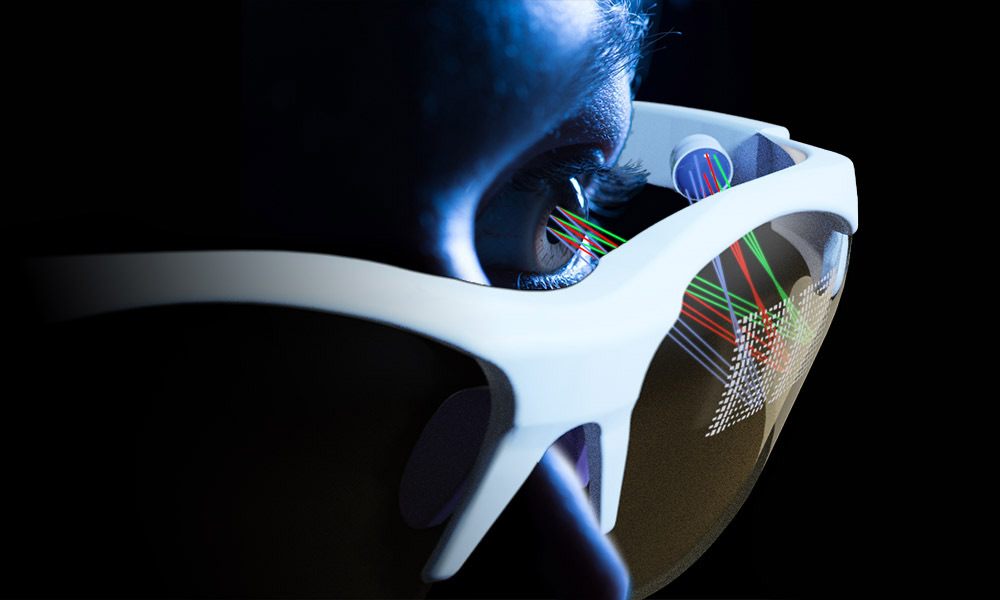
A new way to make AR/VR glasses look more like regular glasses
Rochester researchers are combining freeform optics and a metasurface to avoid ‘bug eyes’ in AR/VR glasses and headsets.
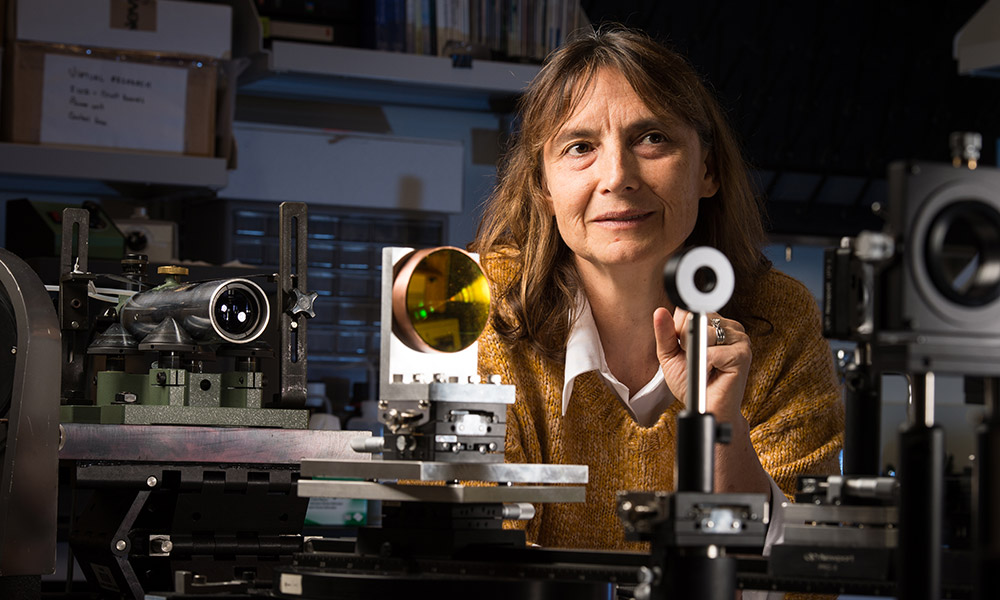
Jannick Rolland named fellow of National Academy of Inventors
The director of the Center for Freeform Optics holds more than 50 patents and is considered a pioneer in optical applications in augmented and virtual reality.
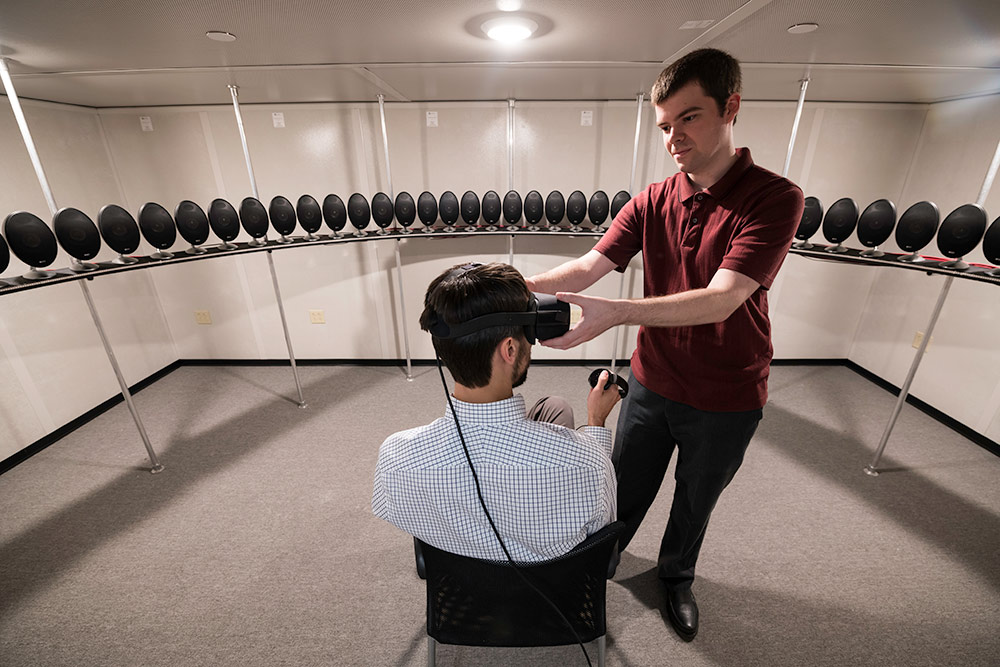
New training in AR/VR tech gives Rochester doctoral students an edge
A $1.5 million grant from the National Science Foundation will establish a structured, well-rounded training program for University scholars applying augmented and virtual reality in health, education, design, and other fields.

From a dancer’s form to freeform optics
Jannick Rolland, director of the Center of Freeform Optics, has 35 patents to her name and is listed among the top women pioneers in augmented and virtual reality.
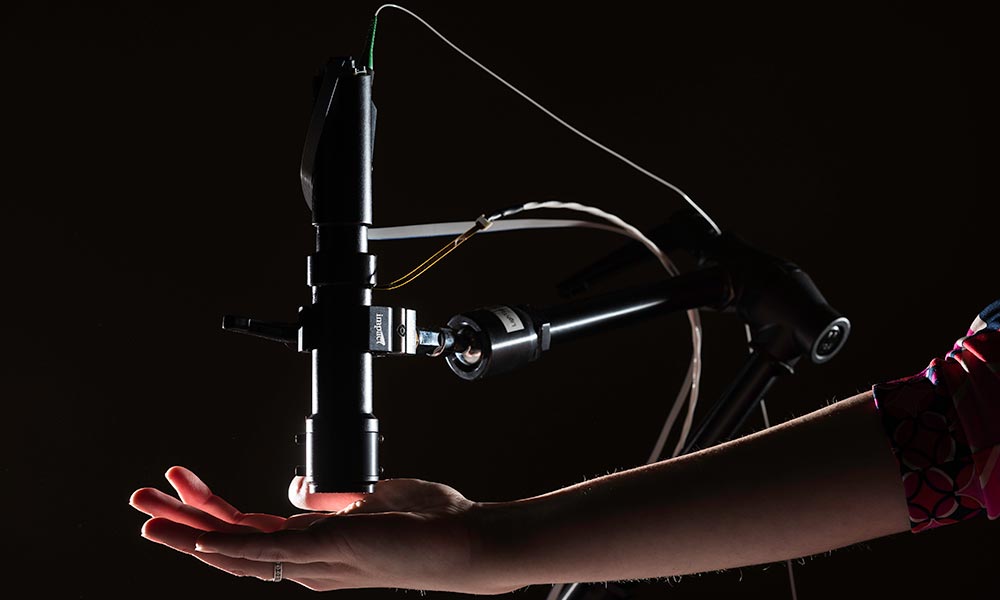
Center of Excellence funds local businesses improving health care
Four grants from the Center of Excellence (CoE) in Data Science are helping companies translate the cutting-edge science of University researchers into improved health care, while also benefiting the region’s economy.
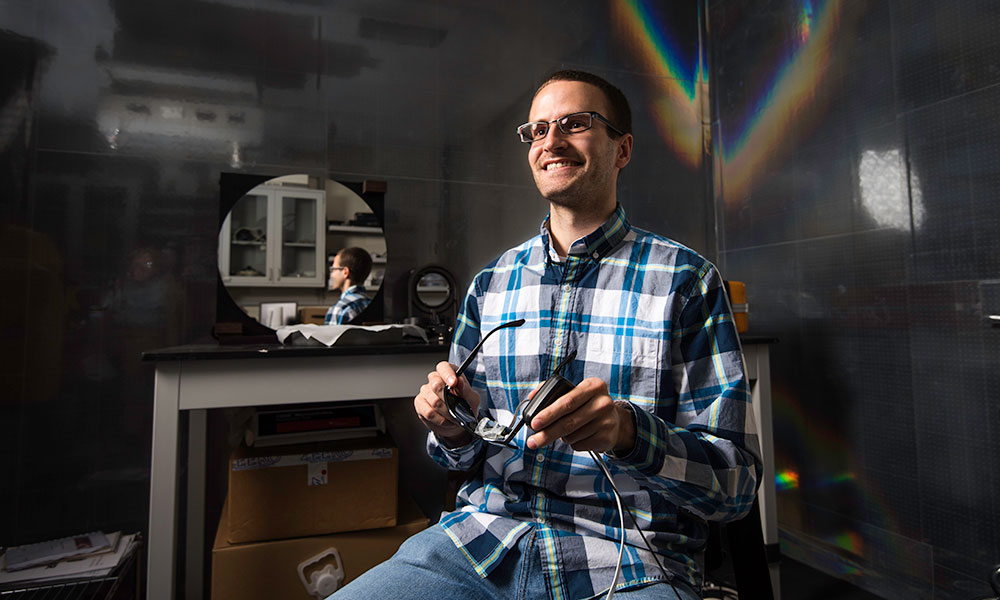
New method eliminates guesswork when lenses go freeform
Lenses and mirrors with freeform rather than symmetric can lead to optical devices that are more effective than ever before. A new design method would eliminate the expensive trail-and-error needed to work with freeform optics.

Cutting-edge science leads to cut-free biopsies
What if biopsies could be performed noninvasively as part of the initial procedure, so surgeons would know immediately whether additional cancerous tissue needed to be removed?
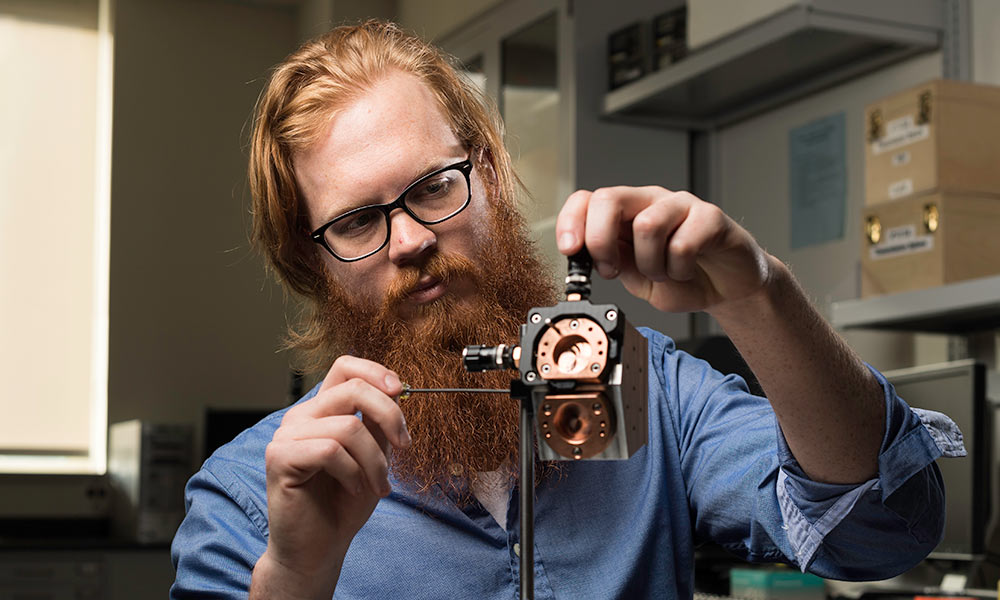
Freeform optical device packs more punch in a smaller package
Spectrometers are used in a variety of applications, from environmental monitoring to astronomy to healthcare diagnostics. A new design using freeform optics upends more than a century of optical design.
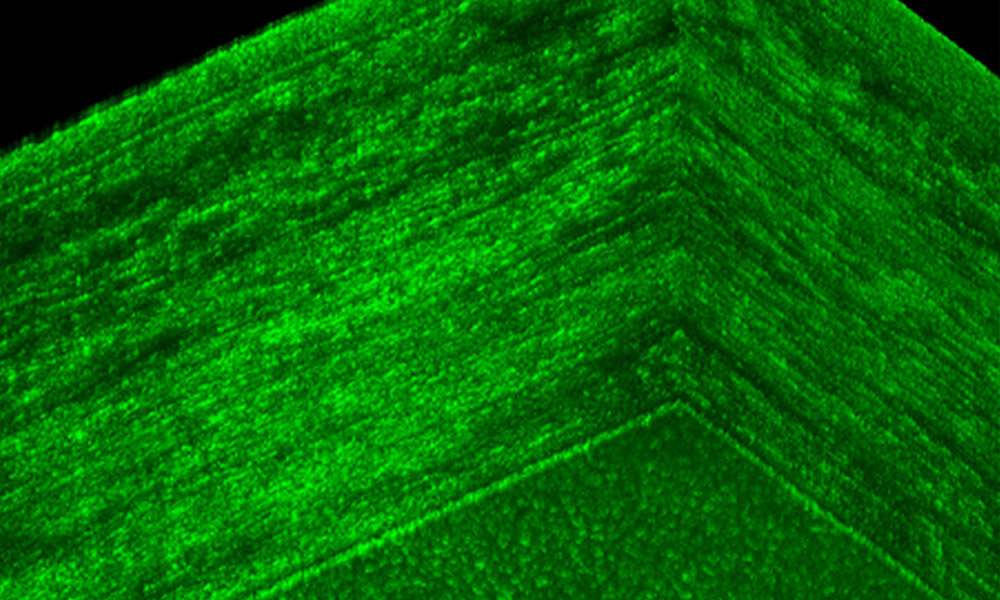
Researchers explore regeneration in critical layer of cornea
A team of University researchers is exploring the possibility that stem cells on the outer edges of the cornea, given the right stimulation, can replace damaged cells. The work raises the possibility of restoring vision without the need for cornea transplants.
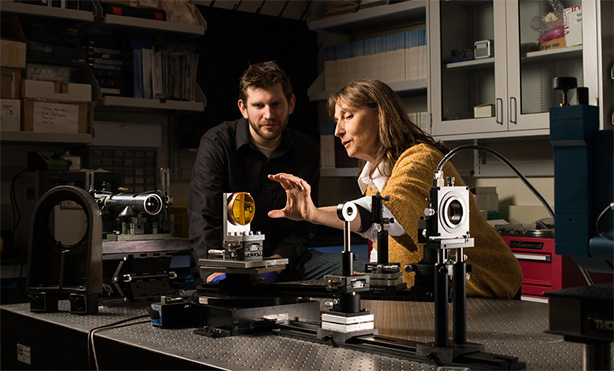
New Partnership Advances Freeform Optics
Freeform optics could transform 21st century optical science, allowing for a wider range of shapes for lenses and mirrors, which in turn may revolutionize mobile displays, LED lighting, remote sensing devices and astronomical instrumentation.
